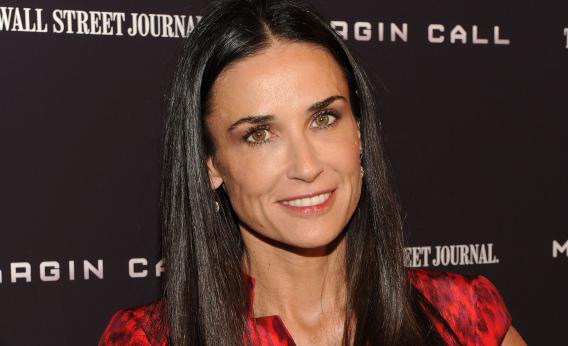News of Demi Moore’s overdose on an alleged combination of whip-its and some kind of smokable incense has been hashed over for days now. Entertainment Weekly wondered if it was morally sound to release the 911 call of Moore’s collapse, even though 911 calls are part of the public record in almost every state. Tess Lynch at Grantland wrote a lovely, lyrical piece about reimagining Moore as a shiny-haired Jacqueline Susann heroine. Star Jones and Dr. Nancy Snyderman, gabbing on the Today Show this morning, believe that Moore deserves some privacy.
At this point, what Moore deserves is irrelevant—the nitrous oxide is out of the cannister, and there’s no shoving it back in. Morning news show talking heads can argue about celebrity privacy forever and it’s not going to turn back the clock on the reality of our current celebrity industrial complex. What’s more, a lot of the commentary around her hospitalization follows the logic that this should be a private event for Moore merely because it shows that she’s vulnerable. Moore’s friend the director Patti Jenkins told E! News over the weekend, “Demi is awesome and so strong. I also hate when people make it a bigger drama than what is going on. She’s great.”
Maybe she is “great.” But probably she’s going through a bit of a rough spot—she’s having to deal with a splashy divorce from someone whom she allowed to subsume her public identity. When she married Ashton, the face she showed the world was @mrskutcher, the miraculously young-looking middle-aged star who bagged a younger man. The two of them took on child trafficking together and looked sexy and powerful with their Brady Bunchish mixed family and really good hair. Then he cheated on her in a gross way, which shattered that carefully constructed picture with one ugly Us Weekly cover.
So instead of pretending that she never went near a can of Reddi-Whip or that she’s not trying to find herself again, Moore should embrace the messy transitional period. Why are we so afraid of female emotion and distress that Moore’s friends have to go out of their way to describe her as “strong”? Why can’t she be both strong and inebriated? Why can’t she be both strong and depressed because her life has changed in ways she didn’t necessarily want or predict? Why can’t she be both strong and undignified?
With all these swirling speculations about Moore I keep thinking of the ‘70s movie An Unmarried Woman, in which Jill Clayburgh gets dumped by her husband and is left unmoored. Her character drinks too much at SoHo bars, has affairs with artists, and is both resilient and sloppy at the same time. At the end of the movie, she’s come out the other side of her grief over her divorce and is a better woman for it. She had to go through some less than stellar moments to get there, but it was worth it in the end. Moore actually said it best herself a few months ago. She tweeted, “[V]ulnerability is one of the most powerful things we can share. Which is different then being needy. Have courage to be seen.”
